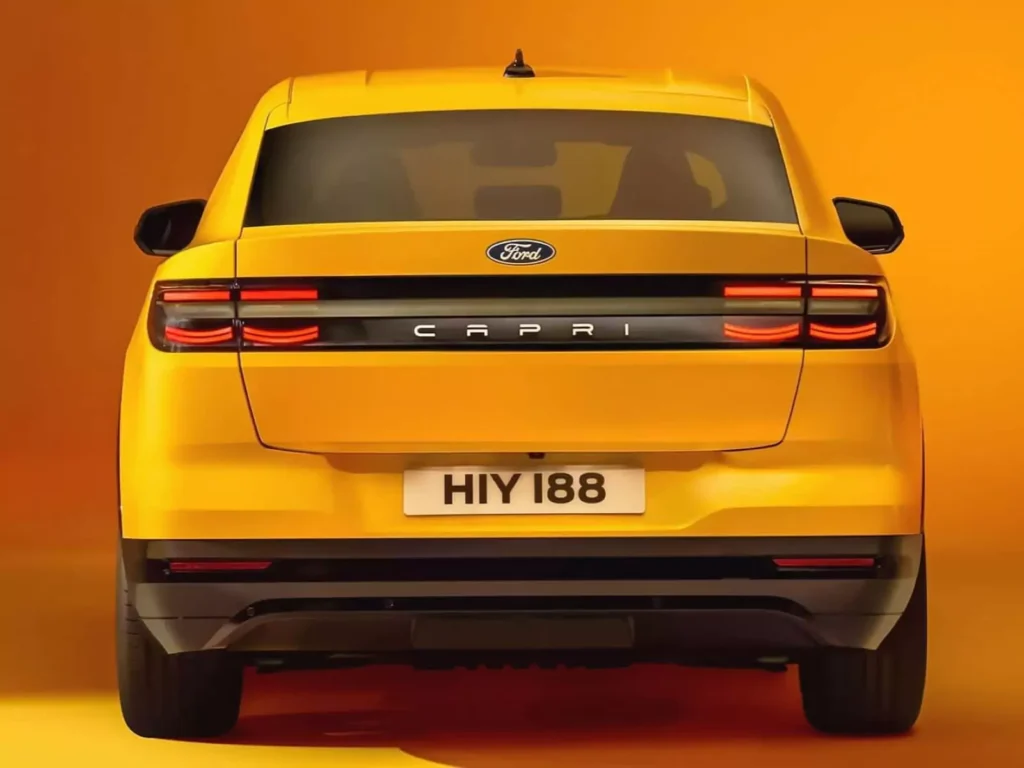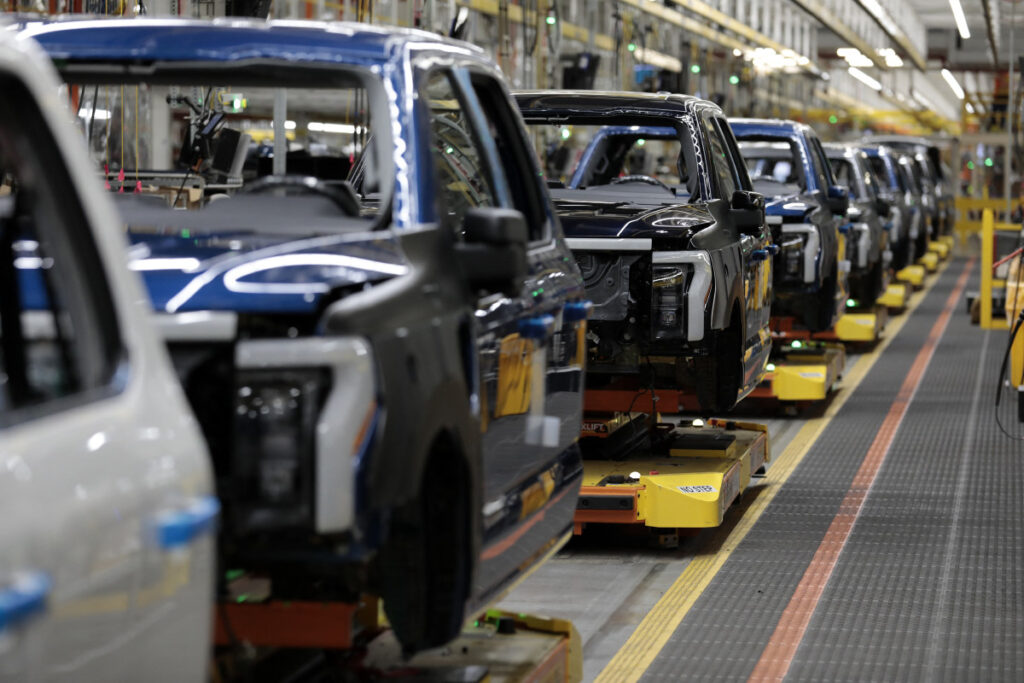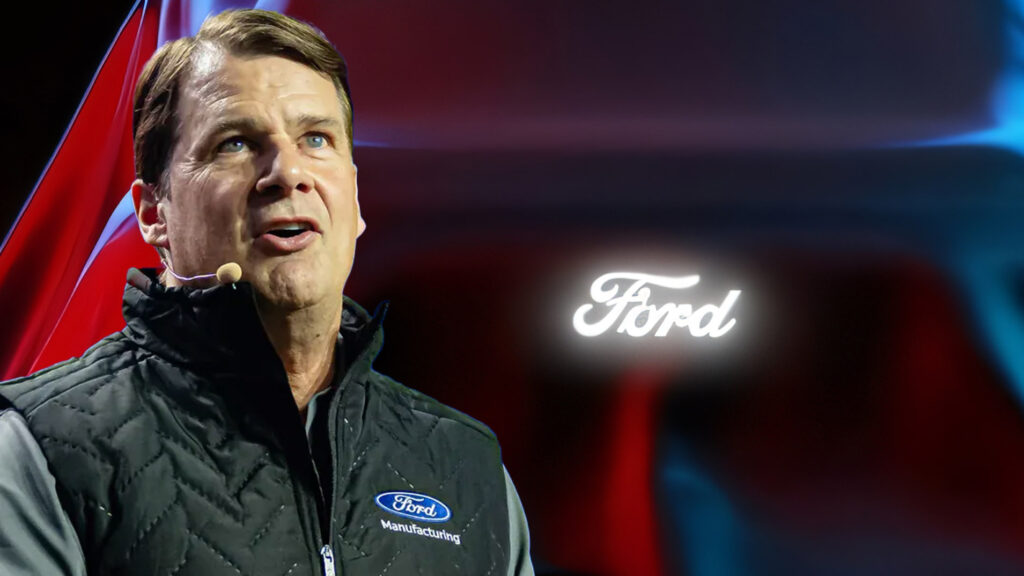I was cruising down the highway in my old Mustang last week, windows down, V8 rumbling like a thunderstorm, when I heard the news on the radio: Ford’s electric vehicle division just tanked to the tune of $5 billion in losses.
Five billion! That’s enough to buy, what, a small country’s worth of gas? It got me thinking-Ford’s been a staple of American roads forever, but their EV game is stumbling hard. What’s the deal, and what does it mean for folks like us who just want a reliable ride?
Let’s dive into why Ford’s big losses and their new EV plans might actually be good news for your wallet, your safety, and that sweet, sweet driving vibe we all chase.
Ford’s “Model e” EV segment took a brutal hit in 2024, with sales dropping 9% and revenue plummeting 35% year-on-year. They even had to pause deliveries on some models because of quality hiccups-yikes.
Social media’s buzzing with folks on X and Reddit griping about recalls and wondering if Ford’s EVs can keep up with the likes of Tesla. But here’s the kicker: Ford’s not throwing in the towel. They’re doubling down on a new plan to build smaller, cheaper EVs, aiming for what they call a “Model T moment.”
Think affordable, reliable electric cars that don’t break the bank or leave you stranded. So, let’s break down seven reasons why Ford’s rocky road could lead to smoother rides for you.
Reason 1: Cheaper EVs Could Save You Thousands

Ford’s big pivot is all about affordability. After bleeding cash on pricey, oversized EVs like electric SUVs and pickups, they’re now betting on compact, budget-friendly models. These new EVs, built on a next-generation platform with help from ex-Tesla engineers, aim to slash costs.
We’re talking cars that could start closer to $25,000 than the $50,000-plus price tags we’ve seen. For you, that means saving up to $20,000 or more on a new EV compared to Ford’s current lineup.
Plus, EVs save you on gas-potentially $1,500 a year, based on average fuel costs-and maintenance, since there’s no oil to change or engine to fuss over. Sure, Ford’s still licking its wounds, but cheaper EVs could put serious cash back in your pocket.
Reason 2: Fewer Recalls, Safer Rides
Let’s talk safety, because nobody wants a car that’s more recall than road warrior. Ford’s had a rough patch with quality issues-think faulty fuel systems and glitchy electric drivetrains. Social media’s lit up with owners venting about their F-150 Lightnings or Mustang Mach-Es spending more time in the shop than on the street.
But Ford’s new focus on smaller EVs means simpler designs, which are often easier to get right. Fewer moving parts, fewer problems. If Ford nails this, they could reduce accident risks tied to faulty components to nearly zero for new models.
Imagine cruising with confidence, knowing your EV won’t suddenly decide it’s nap time on the highway. That’s the kind of safety upgrade we all want.
Reason 3: Supercharger Access Makes Charging a Breeze
Here’s a personal gripe: I once borrowed a buddy’s EV, and finding a charger was like hunting for a unicorn in a haystack. Ford’s fixing that by giving their EV drivers access to Tesla’s Supercharger network.
That’s a game-changer. With over 50,000 Superchargers across the U.S., you’re never far from a quick juice-up. Ford’s losses pushed them to make this deal, and it upgrades your driving experience by making charging as easy as grabbing a coffee.
No more sweating over range anxiety-just plug in and roll. This move alone could make Ford EVs a go-to for road trippers like me who hate detours.
Reason 4: Reliability Fixes Boost Confidence
Okay, let’s get real: Ford’s reliability woes have been a buzzkill. Forums like Reddit are full of stories about Mach-E batteries acting up or software glitches turning your dashboard into a Christmas light show.
But Ford’s learning from this mess. Their new EV platform is designed with reliability in mind, using lessons from those ex-Tesla folks to iron out kinks. Picture this-not an actual memory, but close enough: I’m test-driving a new Ford EV in a couple of years, and it’s smooth, quiet, and doesn’t throw a single error code.
That’s the future Ford’s aiming for, and it means you can trust your car to get you to work, not just to the mechanic.
Reason 5: Lower Resale Risk Saves Your Wallet

Here’s a story from my neighbor, Dave, who bought a used Ford EV last year. He loves the electric vibe, but he’s worried sick about resale value because of all the bad press about Ford’s losses and recalls.
The research shows Ford’s EV troubles are spooking buyers, tanking used car prices. But their new focus on reliable, affordable models could flip that script. If Ford delivers EVs that don’t spend half their life in the shop, resale values could stabilize or even climb.
That’s huge for your wallet-buy a Ford EV in 2026, and you might not lose half its value when you sell it. It’s like buying a car that doesn’t bleed money when you’re ready to trade up.
Reason 6: Cleaner Rides for a Healthier You
EVs are better for the planet, and that’s not just hippie talk-it’s about your health, too. Gas cars pump out fumes that mess with air quality, and I’ve coughed my way through enough city traffic to know it’s no joke.
Ford’s renewed push for EVs, even after their $5 billion flop, means more electric options that cut emissions. The research says slower EV adoption delays these benefits, but Ford’s plan to roll out affordable models could get more folks driving electric, cleaning up the air we all breathe.
It’s not just about saving polar bears-it’s about fewer asthma attacks and clearer lungs for you and your kids.
Reason 7: A Smarter EV Future Awaits

Ford’s losses are a wake-up call, but they’re not giving up. They’re channeling their inner Model T spirit to build EVs that regular folks like us can actually afford and rely on. Think of it like Ford hitting the reset button after a bad lap-they’re tweaking the engine, adjusting the tires, and coming back stronger.
Their pivot means you’ll see EVs designed for real-world needs: space, efficiency, and no surprise repair bills. I’m already daydreaming about zipping around in a compact Ford EV that’s cheap to buy, safe to drive, and doesn’t make me curse at the dashboard. That’s the kind of car experience that makes you love driving again.
So, what’s the takeaway? Ford’s $5 billion EV disaster sounds like bad news, but it’s pushing them to make smarter, cheaper, and safer electric cars. Sure, they’ve got work to do-recalls and reliability gripes aren’t going away overnight.
But their new plan could save you thousands, keep you safer, and make EV ownership as easy as driving your old gas-guzzler. Keep an eye on Ford’s next moves, check for recall updates, and maybe take a test drive when those new models hit the lot.
Who knows? Your next ride might just be a Ford EV that doesn’t break the bank or your patience. For more on where EVs are headed, check out our take on the future of electric trucks.
